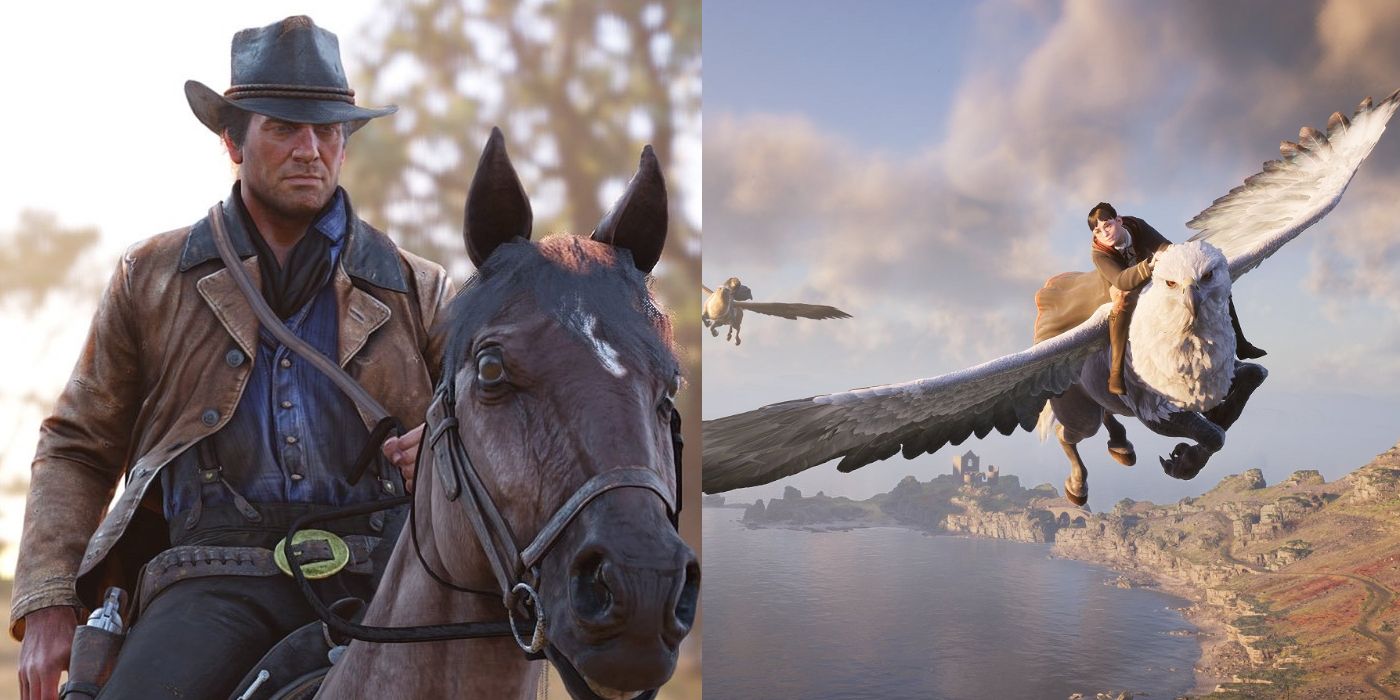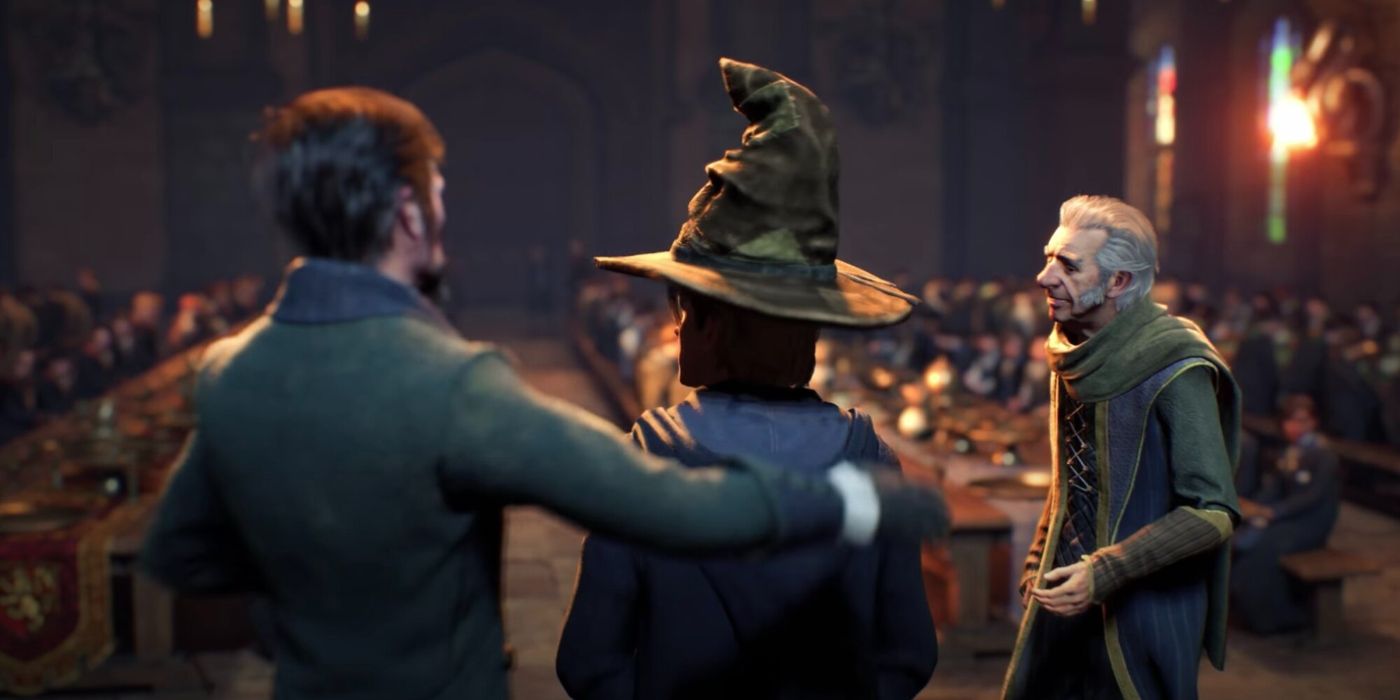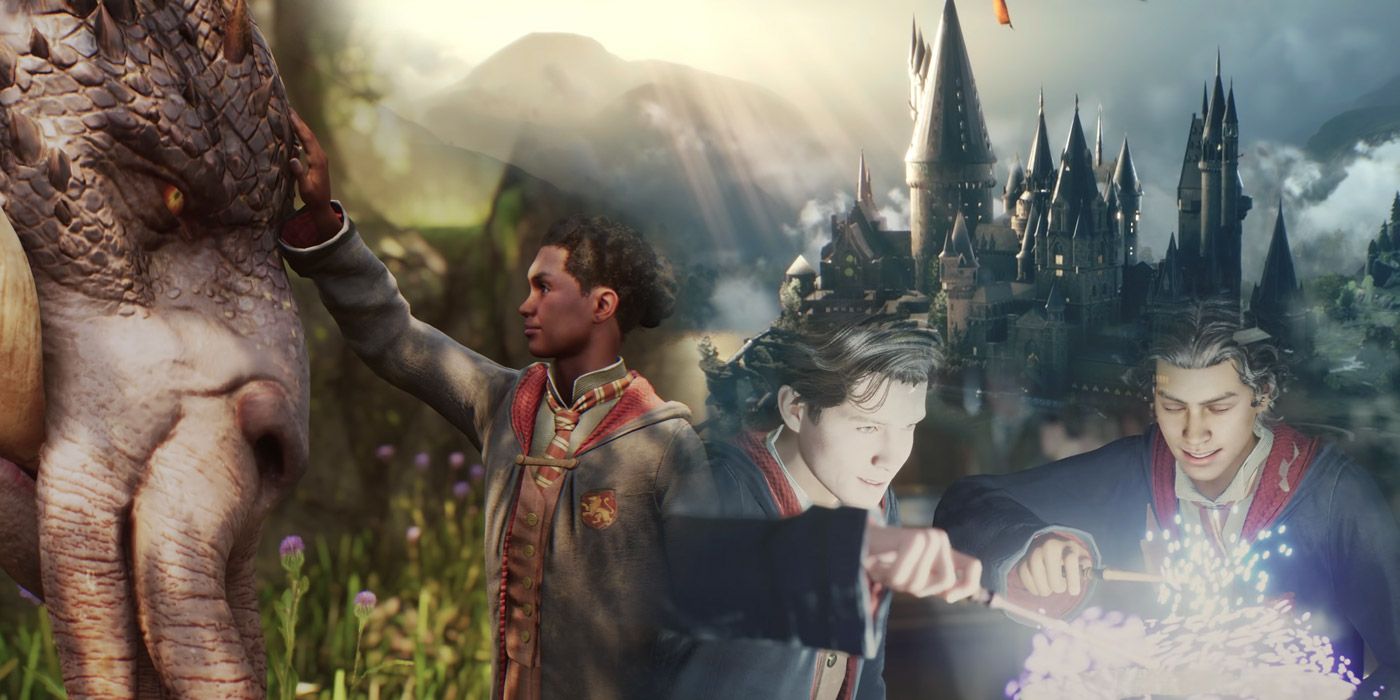Hogwarts Legacy is Avalanche Studio’s upcoming RPG delving into the Wizarding World of Harry Potter, allowing players to step through Hogwarts’ gates as students in the late 1800s. The game has drawn a lot of attention from fans of the franchise, aiming to emulate the visual style of the movies while providing a tight, story-driven roleplaying experience.
Hogwarts Legacy faces a huge amount of challenges, not least dealing with its expansive source material and the high expectations of its fans. One challenge, however, might be solved with a look at a very different game: Red Dead Redemption 2. Though Red Dead Redemption 2 is not an RPG, it tackles one aspect of its storytelling in a way that Hogwarts Legacy could learn from to avoid one potential pitfall in its Potter-based player experience.
Hogwarts Legacy and the School Year
Hogwarts Legacy will see players take on the role of a student at Hogwarts, which has huge implications for the way the game will have to deal with its timeline and pacing. While each of JK Rowling's Harry Potter books and movies takes place over the course of a full school year, Hogwarts Legacy could take place over multiple years. Even if it doesn’t, the time of school year with undoubtedly have an effect on the unfolding of the story. It wouldn’t make sense, for example, for players to be able to visit Hogsmeade at any point of the story, and for it to always to be Christmas as it usually is when depicted in the main franchise.
Similarly, yearly events like Quidditch tournaments and OWLs will have to be accounted for. In other words, the developers at Avalanche will have to figure out a way to tell a story where the setting updates as time progresses. However, if the game simply ticks along through real time players could feel rushed and unable to explore the game world around them. Hogwarts Legacy will need to balance story progression, exploration, and player freedom in its Wizarding World.
Red Dead Redemption 2 handles the same problem with a deft solution that not only avoids undermining exploration, but actively encourages it. Red Dead Redemption 2 has six chapters and a two part epilogue in the main story. The game begins in 1899, but as each chapter progresses, so does time. For example, the stranger mission “A Bright Bouncing Boy” – where players meet a mad Tesla-inspired scientist named Marko Dragic who is attempting to create an army of automatons – only becomes available in Chapter 4.
While most of the Red Dead Redemption 2 story still takes place in the final year of the 19th century, it eventually jumps forward eight years to 1907. However, each chapter still progresses time in a way that has a noticeable affect on the game world and the way the game encouraged exploration and engagement with that world.
Similarly, some quests update and unlock new features as time progresses, with players able to return to the same quest-givers and see the effects of their decisions in previous chapters. Through this, the game actually encourages players to explore the huge game world of Red Dead Redemption 2 each time they enter a new chapter of the game.
However, there is no actual real-time element to any of this, and in no way is the player forced to move through chapters even as time in the real-world progresses. In order to experience all of the content in the game, the player can play through every available side quest in the Red Dead Redemption 2 world, before returning to camp (or to a mission-specific location) to complete part of the main story. This in turn helps progress the game to the next chapter, which unlocks more side quests and strange encounters in Red Dead Redemption 2.
Applying Red Dead's Pacing to Hogwarts Legacy
Hogwarts Legacy should adopt a similar structure. When players arrive at Hogwarts it should, naturally, be the start of the year, and the school’s castle, its grounds, and other surrounding areas should be populated with places to explore, people to meet, and quests to complete. Like Red Dead, the game should make it clear which missions are part of the main quest and therefore will cause time in the game world to progress upon their completion.
The Harry Potter books and movies even help define what some of these chapters could be. One chapter could be the beginning of the year, where players get to catch the train from Platform 9 and 3/4, hear the head-master’s welcoming speech, experience the introductory classes for all of their subjects, meet some new friends, and perhaps even play their first Quidditch match.
A natural second chapter could be the Christmas holiday break, which would allow players to visit Hogsmeade in its famously seasonal appearance and explore the world of Harry Potter covered in snow as it often is at that point in the books and films. Third and fourth chapters could be the second semester of the year and the time approaching the end of the school year and the climax of the story.
Of course, this chapter format would have to be adapted if the storytellers at Avalanche Studios want to weave a narrative which spans multiple years. Nonetheless, the structure of the original Harry Potter stories is deeply tied to the progression of the school year, and the year itself will have to progress in-game for the story to feel like it belongs in that universe, and for players to get the full Hogwarts experience.
There might not be many features that Hogwarts Legacy should take from Red Dead Redemption 2, but it’s handling of time is one of them. Hogwarts Legacy will have many other challenges – avoiding emulating the movies or books too closely, giving its player protagonist a sense of personality balanced with a degree of customization, handling its Hogwarts house system to name just a few. If Avalanche can nail the pacing, however, the game will have made one significant step on the road to success.
Hogwarts Legacy is in development for the PC, PS4, PS5, Xbox One, and Xbox Series X.



